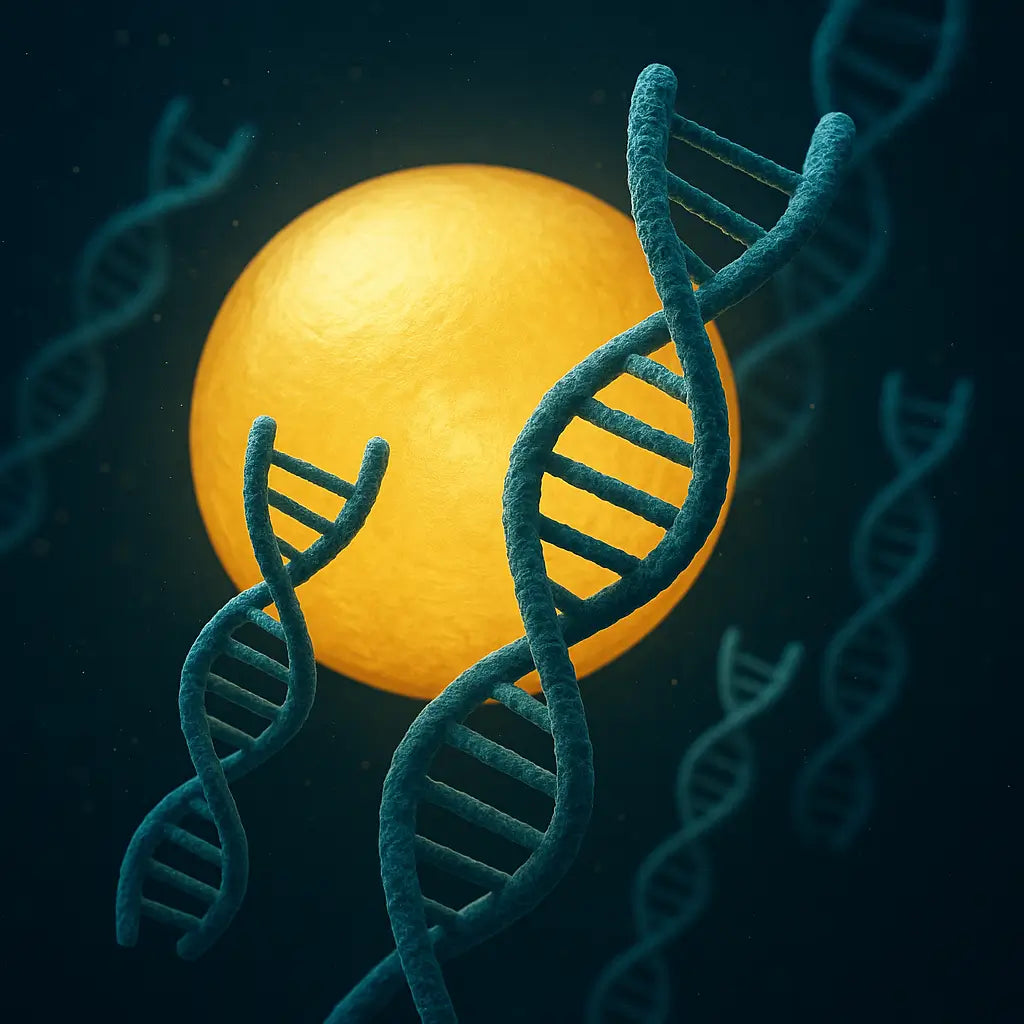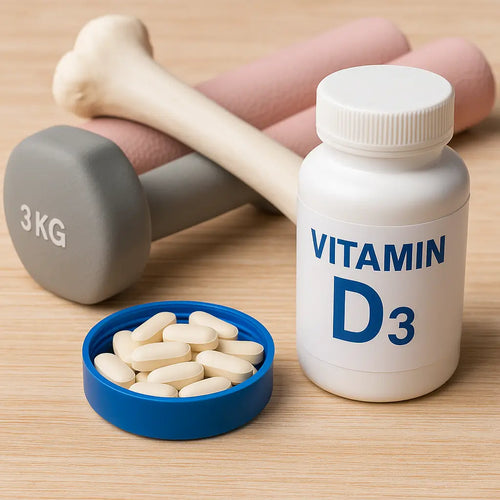
We’ve all heard of vitamin D and omega-3s being “good for you,” but here’s where things get really interesting—a major study (Zhu H, et.al., 2025) just revealed that vitamin D3 might actually slow aging at the cellular level.
Let me break it down.
The Anti-Aging Power of Telomeres (And Why They Matter)
Every time your cells divide, the protective caps on your DNA—called telomeres—get a bit shorter. Think of them like the plastic tips on shoelaces. When they wear down, the laces (or in this case, your cells) start to fray. This shortening is linked to aging and diseases like heart disease, diabetes, and even cancer.
So, keeping your telomeres longer = aging better.
The VITAL Study: What It Did Right
In one of the largest and most trusted clinical trials out there—the VITAL study—over 1,000 participants aged 50+ took either:
- 2,000 IU of vitamin D3 per day
- 1 gram of marine omega-3 fatty acids per day
- Or a placebo
Researchers measured their leukocyte telomere length (LTL) at the start, 2 years in, and again after 4 years. This isn’t guesswork—they used precise lab methods to measure actual cellular changes.
The Big Win: Vitamin D3 Slowed Telomere Shortening
Here’s the headline:
People taking vitamin D3 had significantly less telomere loss—by about 140 base pairs—over 4 years.
That might not sound like much, but it’s the equivalent of slowing cellular aging in a measurable way.
To put it simply:
Daily vitamin D3 helped keep their cells biologically younger.
What About Omega-3s?
Surprisingly, the omega-3 supplements didn’t show any significant benefit on telomere length in this trial. That doesn’t mean omega-3s are useless (they’re still great for heart and brain health)—but they may not be a telomere protector the way vitamin D3 is.
What This Means for You
- If you’re over 50 (or even younger and thinking long-term), consider supplementing with 2,000–3,000 IU of vitamin D3 daily.
- Don’t forget the basics: Get your levels tested first. Too much vitamin D isn’t good either.
- Combine this with a healthy lifestyle—good sleep, exercise, and whole foods—and you’re stacking the odds in your favor.
A Convenient Way to Get 2,000 IU of Vitamin D3
Want an easy way to start? Consider trying Pure Encapsulations O.N.E. Multivitamin. It delivers 2,000 IU of vitamin D3 along with other key nutrients in highly bioavailable forms—perfect for supporting cellular health, cognitive function, and more.
O.N.E. Multivitamin Highlights:
- Once-daily formula with sustained-release CoQ10
- Contains highly bioavailable vitamins A, B, C, D, and E
- Includes L-5-MTHF folate, alpha lipoic acid, lutein, lycopene, and more
- Designed for men and women 18+
Special Offer:
Register here with Pure Encapsulations and receive 5% off and free shipping on all orders.
Bottom line
This isn’t hype—science-backed vitamin D3 can actually help you age slower, one cell at a time.
Reference
Zhu H, Manson JE, Cook NR, Bekele BB, Chen L, Kane KJ, Huang Y, Li W, Christen W, Lee IM, Dong Y. Vitamin D3 and marine ω-3 fatty acids supplementation and leukocyte telomere length: 4-year findings from the VITamin D and OmegA-3 TriaL (VITAL) randomized controlled trial. Am J Clin Nutr. 2025 May 21:S0002-9165(25)00255-2. doi: 10.1016/j.ajcnut.2025.05.003. Epub ahead of print. PMID: 40409468.









